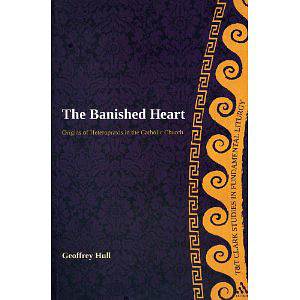 Jeg fikk boka: The Banished Heart: Origins of Heteropraxis in the Catholic Church (T&T Clark Studies in Fundamental Liturgy), author Geoffrey Hull – fra amazon.co.uk (direkte lenke) for en ukes tid siden, og har så vidt begynt å lese i den. På Amazon presenteres den slik:
Jeg fikk boka: The Banished Heart: Origins of Heteropraxis in the Catholic Church (T&T Clark Studies in Fundamental Liturgy), author Geoffrey Hull – fra amazon.co.uk (direkte lenke) for en ukes tid siden, og har så vidt begynt å lese i den. På Amazon presenteres den slik:
This is a critical assessment of the Liturgical Reform after the second Vatican Council that seeks the origins of failure in pre-conciliar developments. If the suppression of the traditional Roman liturgy against the wishes of the Second Vatican Council was, in the words of Silvio Cardinal Oddi, ‘a crime for which history will never forgive the Church’, why, at the end of the 1960s, did the vast majority of Latin Catholics abandon, with little or no regret, their time-hallowed forms of worship? «The Banished Heart» seeks to account for this cultural and spiritual catastrophe by demonstrating what will surprise many: how the present mainstream Catholic Church, with its modernistic and secular aura, grew directly from the official conservatism of the Church as it was before the Council. T Clark Studies in «Fundamental Liturgy» offer cutting edge scholarship from all disciplines related to liturgical study. The books in the series seek to reintegrate biblical, patristic, historical, dogmatic and philosophical questions with liturgical study in ways faithful and sympathetic to classical liturgical enquiry. Volumes in the series include monographs, translations of recent texts and edited collections around very specific themes.
Som lesere av denne bloggen vet, er jeg interessert i liturgiske spørsmål, spesielt om hvordan messen best kan feires og hvordan de troende best kan delta i messen. Denne boka (håper jeg) vil hjelpe meg å forstå begge disse spørsmålene bedre. Den sier nok en hel del om hvordan reformene etter Vatikankonsilet ikke var særlig vellykkede, men også en hel del (og det er jeg aller mest interessert i) om hvorfor reformen etter konsilet ble så fryktelig radikal. Jeg har tenkt på et par problematiske ting ang. den tradisjonelle messen allerede; at det var noen steder en tendens til å «lagdele» den, at presten gjorde en ting, mens lekfolket samtidig gjorde noe ganske forskjellig, både mht bønner og sang/musikk. (Jeg har ingen problemer med at de troende mediterte over temaer som fulgte messens gang (og det var mange forslag til hvordan det kunne gjøres), men jeg syns det var mindre passende om man ba bønner som ikke hadde noe med messen å gjøre.)
